Pacolli faces tough time as Kosovan president
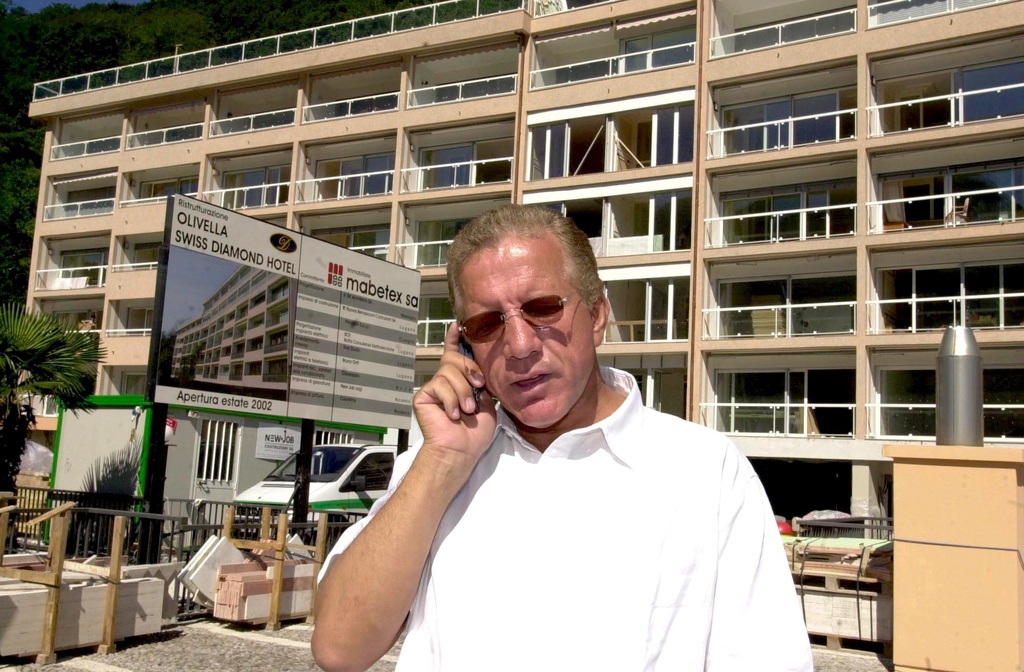
Naturalised Swiss Behgjet Pacolli, who has just been elected head of state of Kosovo, faces a rough ride ahead, two experts have told swissinfo.ch.
Pacolli, a controversial construction entrepreneur with a fortune estimated at up to SFr1 billion ($1.1 billion), was elected in a third round of voting on Tuesday, with just 62 votes in the 120-seat parliament. He did not receive the required two-thirds of the vote in the first two rounds.
The new parliament was sworn in on Monday and, in one of its first tasks, gave caretaker prime minister, Hashim Thaci of the Democratic Party of Kosovo, 65 votes out of a possible 120 to continue in his post.
Pacolli, from the New Kosovo Alliance, which has signed a coalition deal with Thaci, was the subject of money laundering and corruption investigations in Switzerland in connection with his civil engineering company Mabetex in Lugano. However, in 2002 the authorities dropped the case.
Thaci’s name also hit the headlines after an explosive report presented by Swiss senator Dick Marty in December on alleged organ trafficking in Kosovo.
Andreas Gross, a Swiss MP and president of the Social Democrats in the parliamentary assembly of the Council of Europe, is disappointed by the news coming from the Kosovan capital, Pristina.
“I’m sad because I think the Kosovan people deserve so much, [including] a new political culture which separates politics from business and corruption and even organised crime,” he told swissinfo.ch
“Ambivalent figure”
“Nobody knows the exact truth but the new president is one of the most ambivalent figures in politics… no one is able to make, in an honest way, one billion in his lifetime.”
Gross added that Pacolli symbolised a kind of politics that was “the last thing Kosovo needs now”.
Bashkim Iseni, a political scientist at Neuchâtel University and director of the Lausanne-based information platform albinfo.ch, said people had to respect the verdict of the ballot box in Kosovo.
“It’s a result of the game of democracy. There were elections. Democracy can lead to rather unenviable situations as is perhaps the case now…”
“The election of Mr Pacolli has given rise to many questions, taking into account his relations with Russia and that’s he’s a businessman,” he told swissinfo.ch.
Pacolli’s company has had a string of lucrative contracts with not only Moscow, including renovating the parliament, but also with Kazakhstan, Cuba and elsewhere.
Trojan horse?
Gross said a Croatian newspaper article hinting that Pacolli was a kind of “Trojan horse of Russia” was too one-sided. Russia is an ally of Serbia, which is opposed to Kosovo’s independence.
“He’s a kind of oligarch who does business with everybody and he likes authoritarian, not to say totalitarian, leaders with whom you can negotiate prices,” he said.
“He’s someone who will continue not to separate business from politics and this is exactly what Kosovo does not need.”
Political scientist Iseni also makes the point that Pacolli has strong ties with lobbyists in the United States and “has been coached and strongly influenced by them”.
Both Gross and Iseni say the role of president is an important one in a country that has been trying to find its feet since declaring independence in 2008.
“Different political moulds”
“He [Pacolli] will have a lot of power, both symbolically and because he has the authority to block things institutionally. We also have to wait to see how his relationship with Mr Thaci will develop because they come from two entirely different political moulds,” Iseni explained.
“I don’t think this coalition will lead to stability but on the other hand Kosovo will have a real opposition and that is really important because it has not had one up till now.”
Gross feels that Kosovo needs to convince those countries that still hesitate to recognise its independence.
“Even in the Council of Europe, we only have two thirds of the states which recognise Kosovo. Kosovo should become a fully-fledged member of the Council to give, for example, citizens the right to go to Strasbourg to be under the umbrella of the protection of human rights.
“In this sense we need politicians and representatives who symbolise respect for human rights, the rule of law and democracy.”
As for the future of Kosovo, Iseni maintains that the country has real potential but lacks any development strategy worthy of the name.
“I don’t know if Mr Pacolli has the ability or good advisers that can help in the process. It’s difficult to have a positive and optimistic view of a country which doesn’t know where it’s going. There’s no map or compass and that’s the problem,” he said.
The 59-year-old Kosovo Albanian entered politics only in 2006. He took a leading role in forming the New Kosovo Alliance. He was elected into parliament in 2007.
The election as head of state can be considered the pinnacle of success for a man who was born into a poor family and worked his way up. He is often described as “the richest Kosovar”.
Pacolli grew up near Pristina together with nine brothers and sisters. When he was 17, his mother sent him to Germany.
He worked in a Hamburg pizzeria and at the same time completing a bachelor’s degree in economics, specialising in marketing and management. In 1976 he moved to Switzerland where he obtained a master’s degree in marketing and production management in Zurich.
In 1991, he founded Mabetex Project Engineering, a construction company based in Lugano, canton Ticino.
His company has made a name for itself by winning contracts for prestigious buildings, particularly in eastern Europe.
Switzerland belongs to the main donor nations of Kosovo.
Between 1999 (after the conflict between Serbs and Kosovars) and 2010, the Swiss authorities contributed around SFr200 million towards development, political stability and the economy in the country.
Since 1999 Switzerland has taken part in the KFOR peace mission under the leadership of Nato. About 220 soldiers from Swisscoy are stationed in Kosovo every year.
Switzerland recognised Kosovo ten days after the declaration of independence on February 17, 2008. At the end of March, Switzerland opened an embassy, a move which was considered controversial.
About 170,000 Kosovars live in Switzerland, a figure that represents about ten per cent of the Kosovan population.
The Council of Europe in January adopted a report presented by Swiss senator Dick Marty on allegations of organ-trafficking, implicating high-ranking members of the Kosovo Liberation Army in the murder of Serbian and Kosovo Albanian prisoners and the selling of their organs. There were also strong accusations against Kosovo’s prime minister, Hashim Thaci.
The report was not well received in Kosovo and troubled bilateral relations. Marty was accused of providing no hard evidence for his accusations.

In compliance with the JTI standards
More: SWI swissinfo.ch certified by the Journalism Trust Initiative
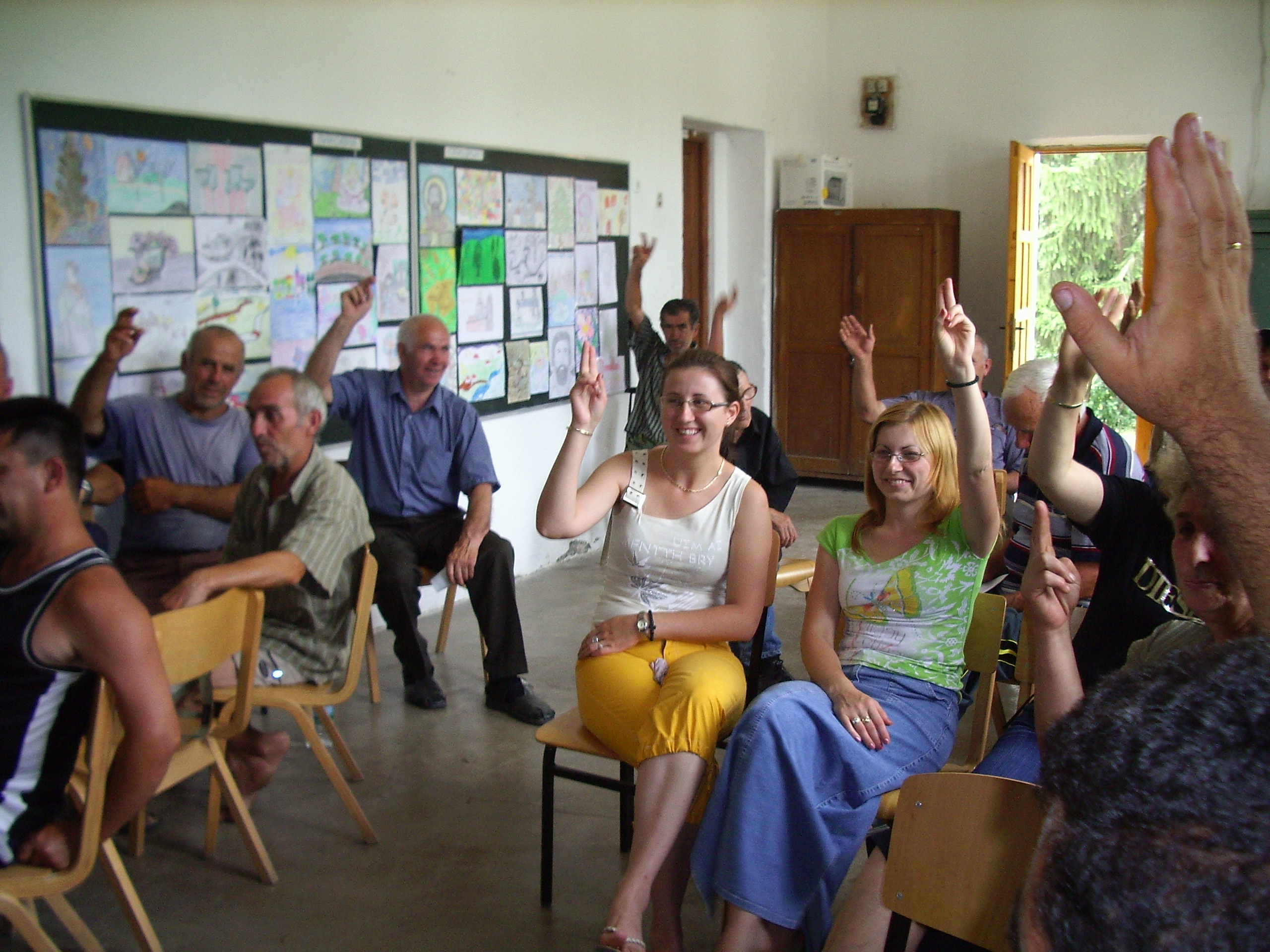
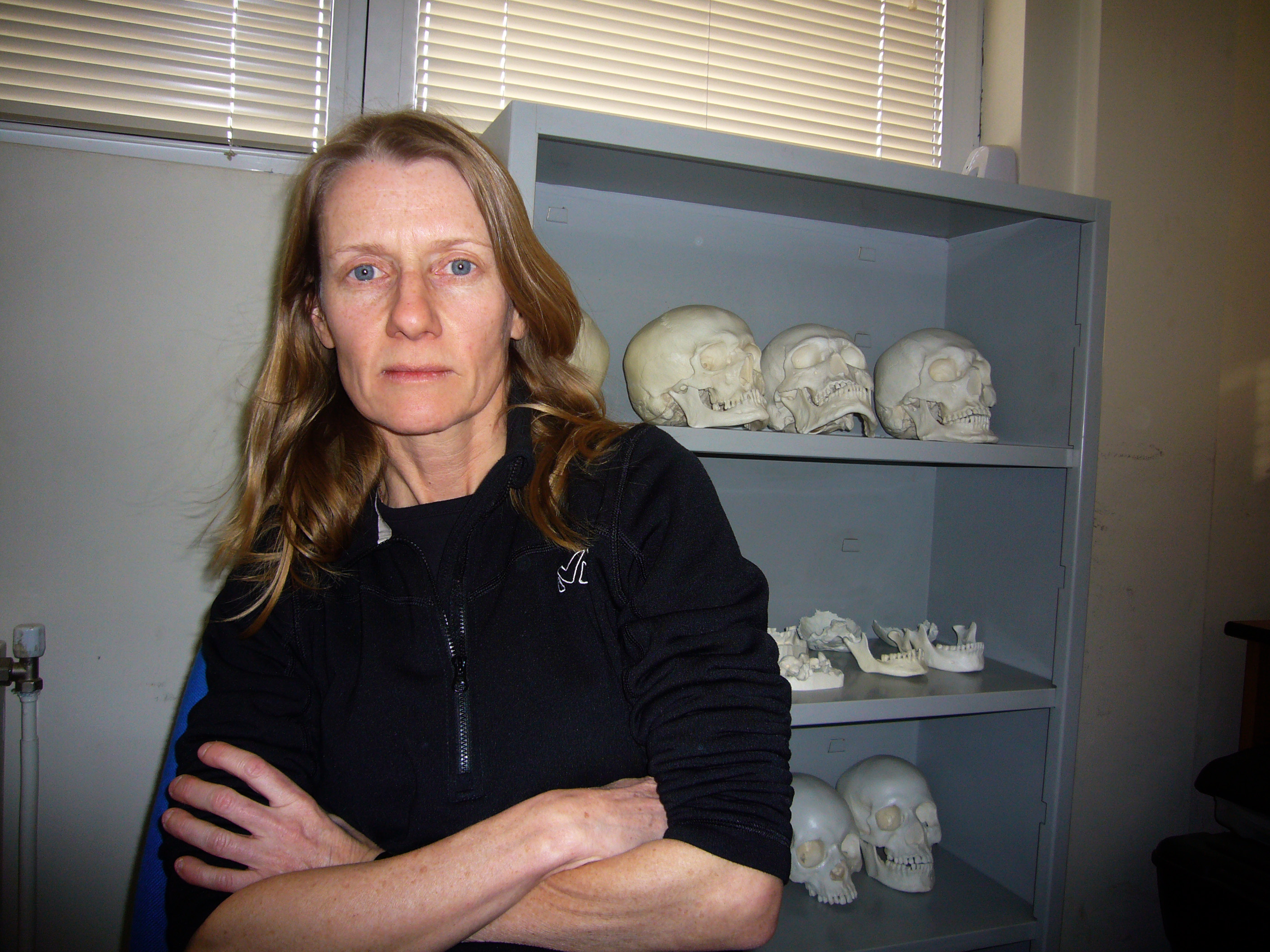
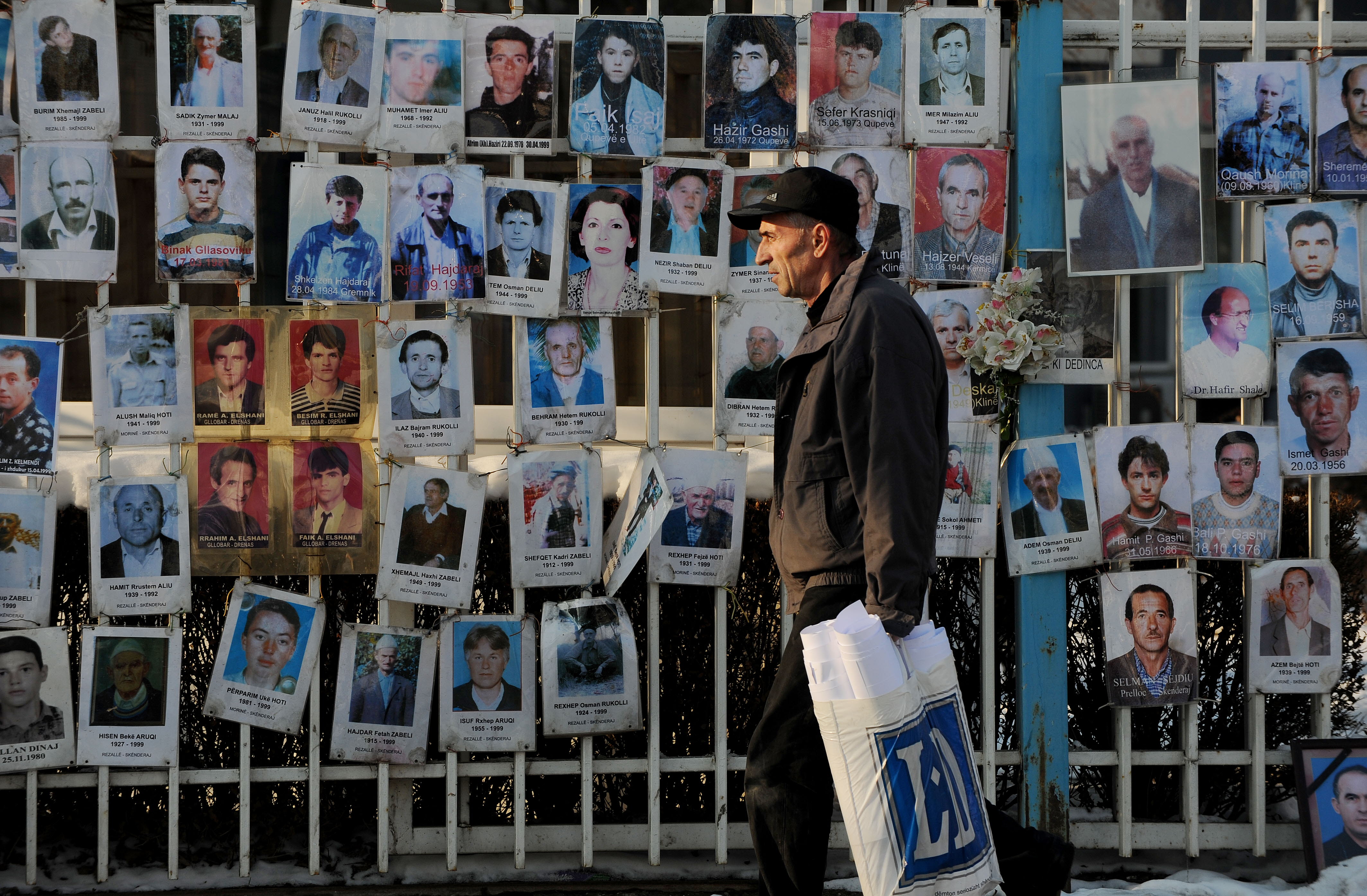
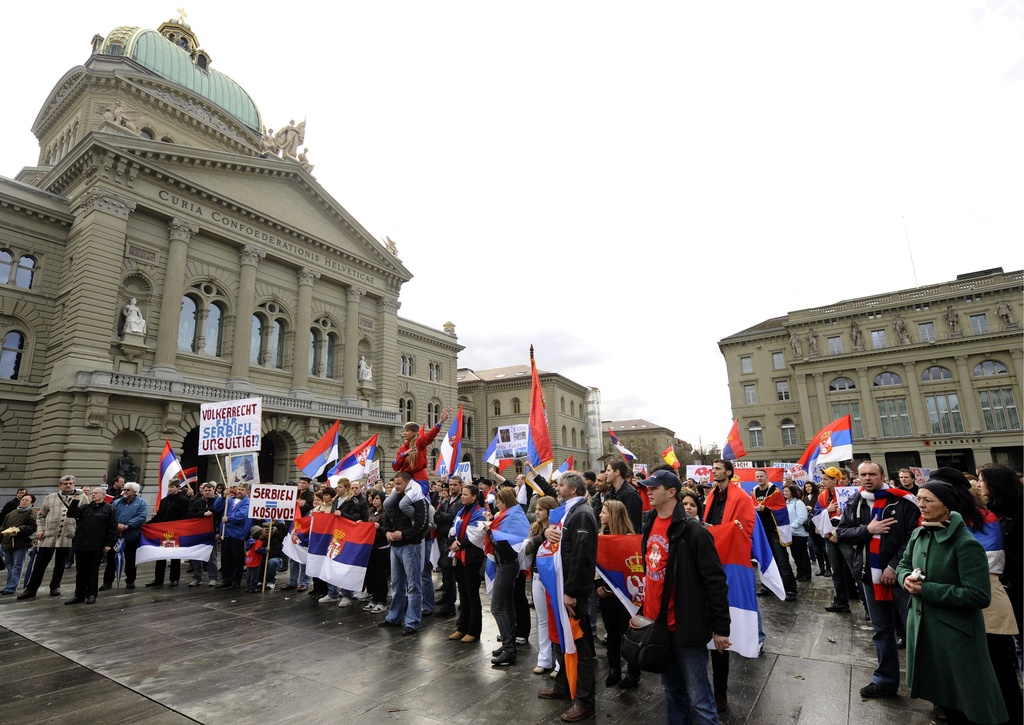
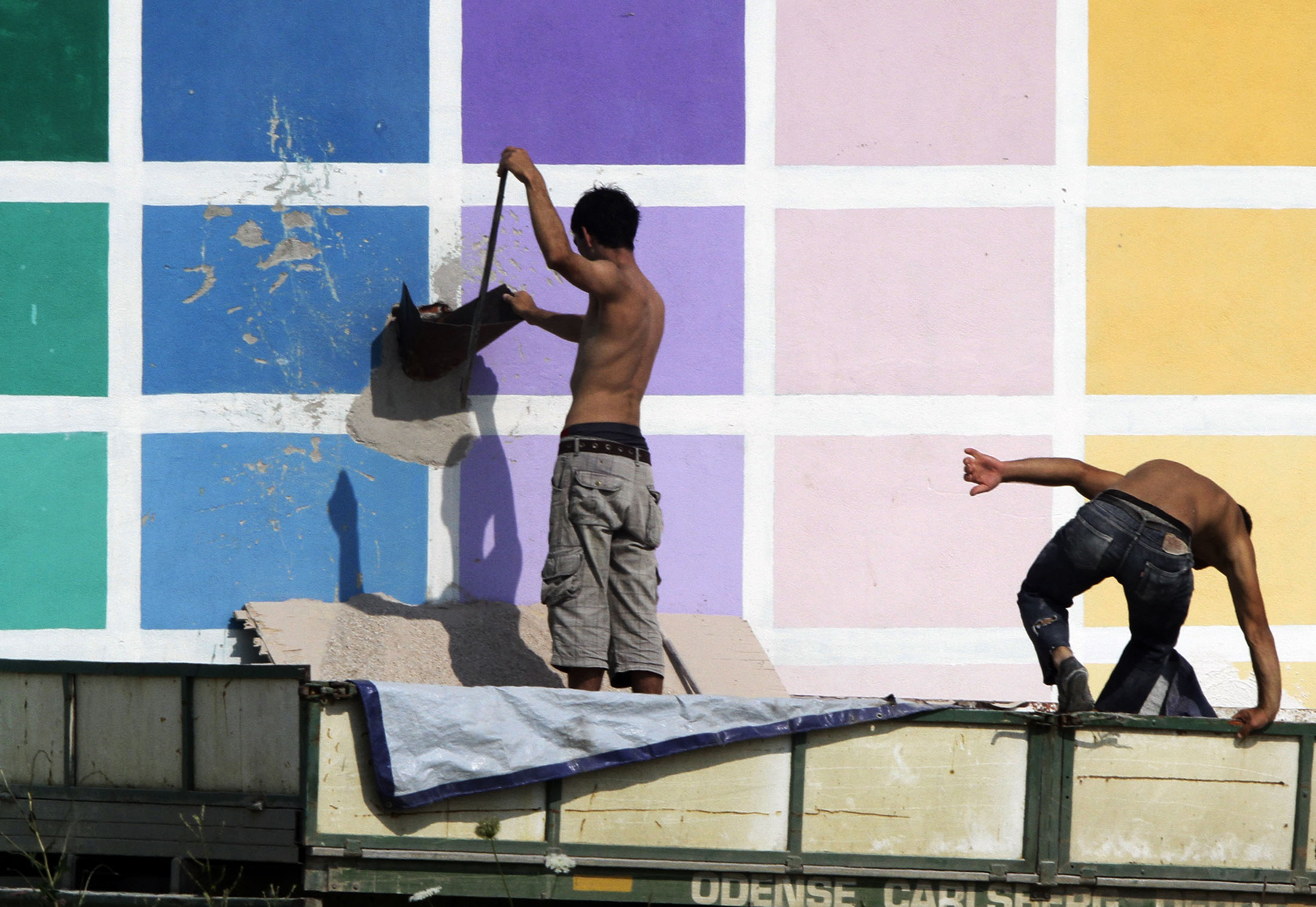
You can find an overview of ongoing debates with our journalists here. Please join us!
If you want to start a conversation about a topic raised in this article or want to report factual errors, email us at english@swissinfo.ch.